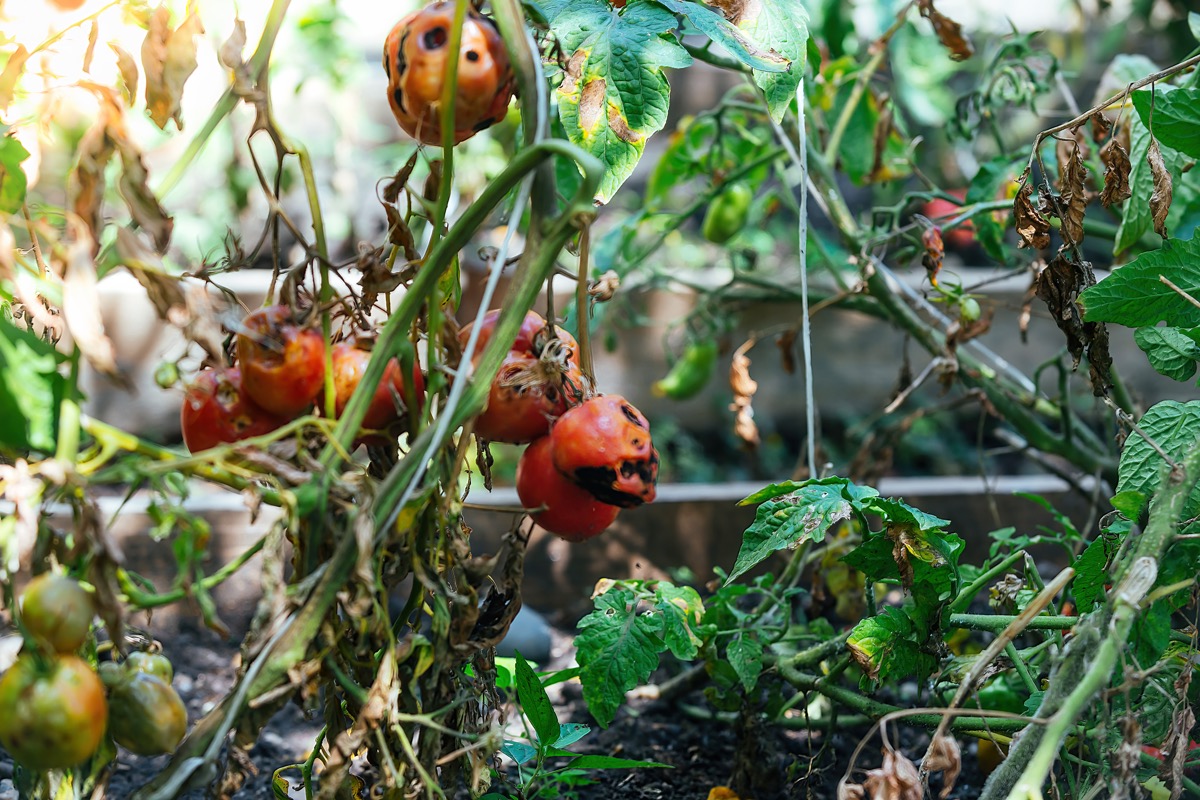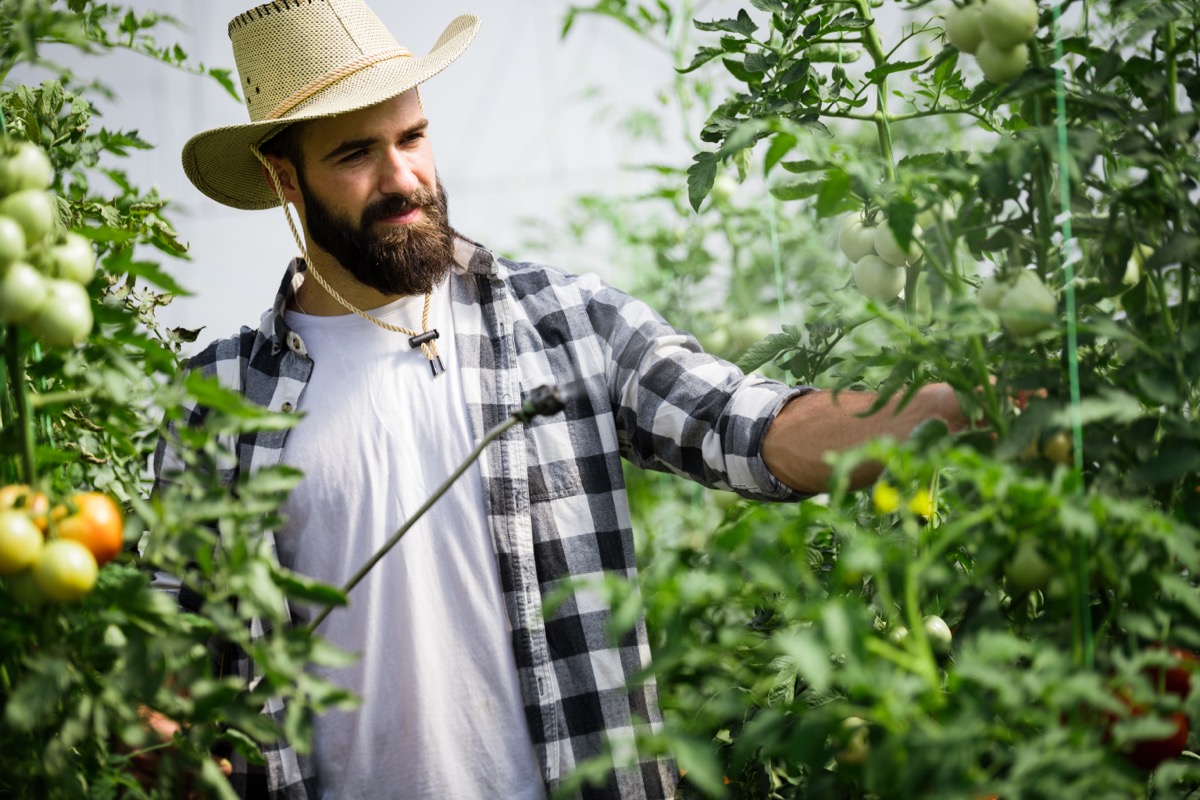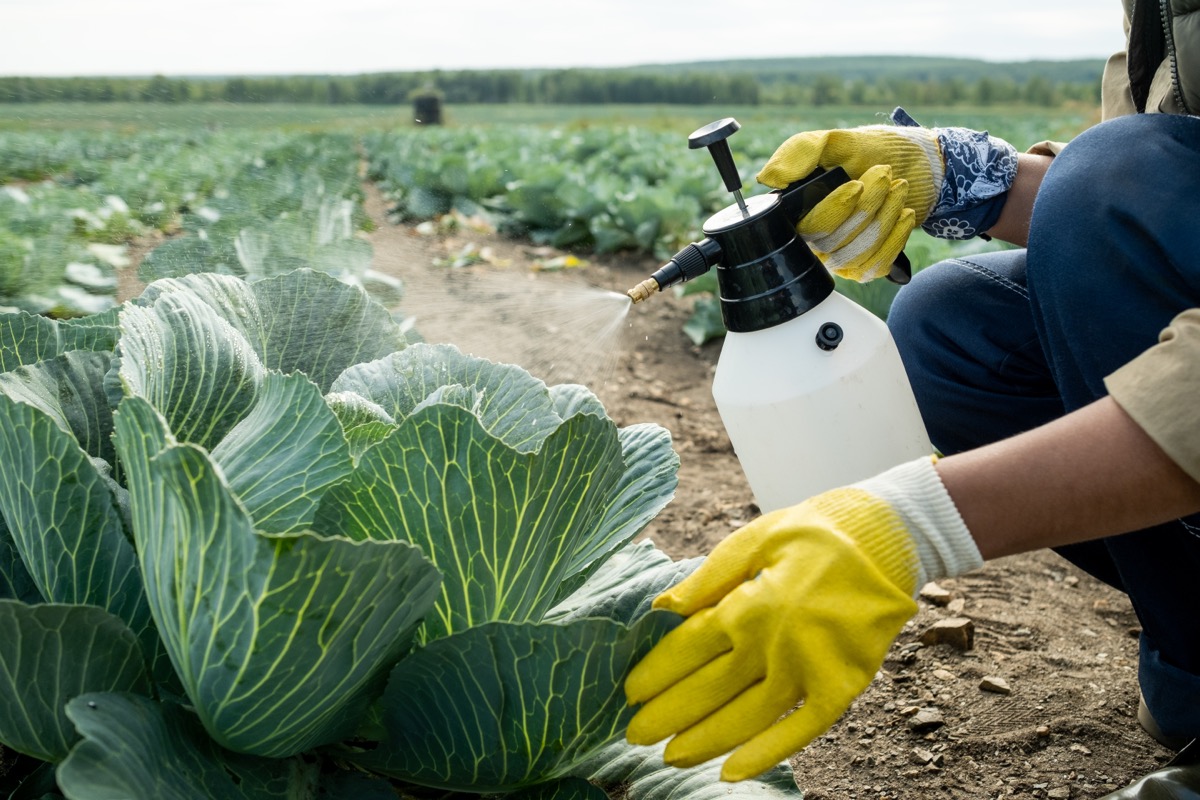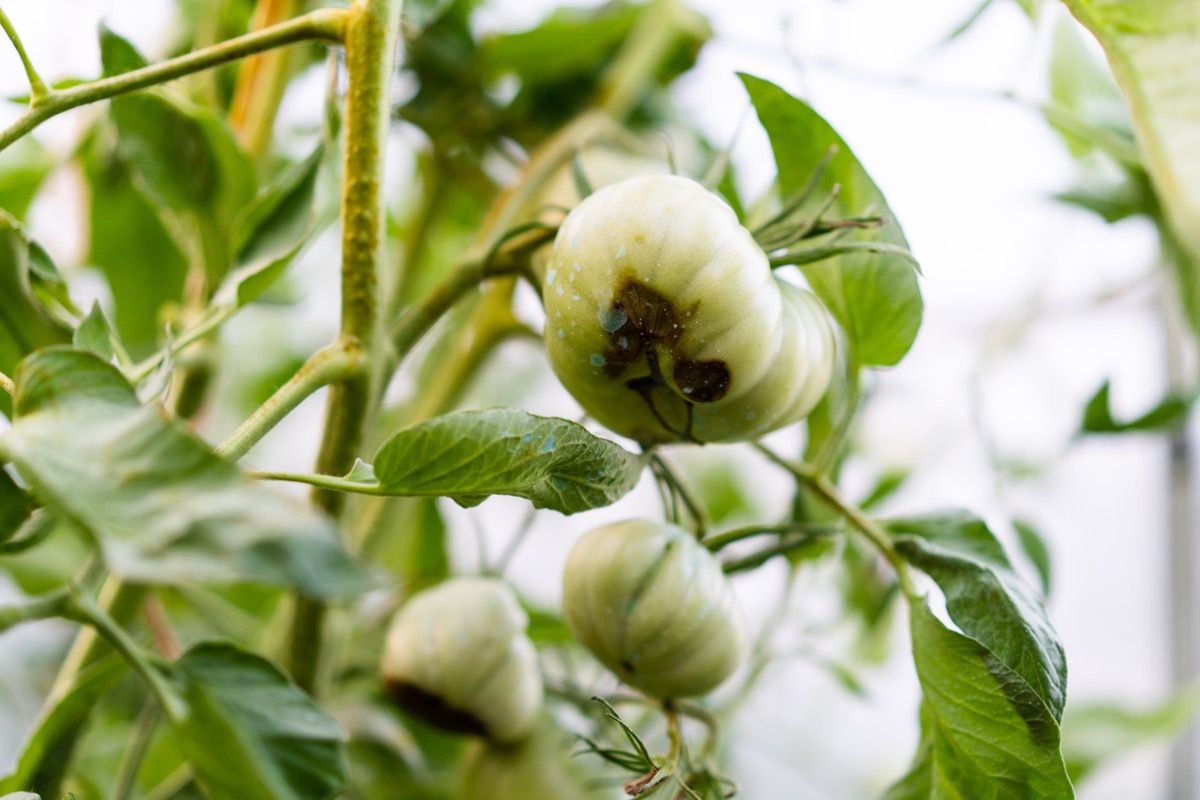Fungal diseases in vegetables are a common problem that can wreak havoc on your garden. These diseases are caused by various fungi, which thrive in warm and humid conditions. They can affect all plant parts, including leaves, stems, fruits, and roots. Some fungal diseases occur in a wide range of vegetables. These diseases include Anthracnose; Botrytis rots; Downy mildews; Fusarium rots; Powdery mildews, etc.

10 Natural Ways to Treat Fungal Diseases in Vegetables
Organic Fungicides for Vegetable Gardens
- Organic fungicides are derived from natural sources and can effectively control fungal infections without harming beneficial insects or contaminating the soil.
- One popular organic fungicide is baking soda. Known for its antifungal properties, mix 1 tablespoon of baking soda with water and apply it to affected plants. This homemade remedy helps to prevent powdery mildew and other common fungal diseases.
- Another effective option is neem oil, which comes from the seeds of the neem tree. Mix 1 teaspoon of neem oil with one quart of water and apply it to infected vegetables every seven days.
- Copper-based fungicides are another organic solution that has been used for centuries. Copper sulfate or copper hydroxide sprays can be applied preventively or when symptoms first appear. These products create a protective barrier on plant surfaces, preventing spore germination and halting disease progression.
Companion Planting for Fungal Disease Prevention
- It is a natural and effective way to prevent fungal diseases in your vegetable garden. One popular companion plant for preventing fungal diseases is marigolds. Planting marigolds near susceptible vegetables like tomatoes or cucumbers can provide an extra layer of protection against diseases such as powdery mildew or damping-off.
- Another beneficial companion plant is basil. Planting basil alongside vulnerable vegetables like peppers or eggplants can help keep fungal infections at bay.
- Additionally, incorporating garlic into your vegetable garden is a natural fungicide due to its antifungal properties. Garlic releases organic compounds that can inhibit the growth of pathogens in the soil and nearby plants.
- Furthermore, intercropping with beans can be advantageous in preventing fungal diseases. Beans are mainly known for their ability to fix nitrogen in the soil, which improves overall soil health and reduces susceptibility to fungal infections.
Biocontrol Agents for Vegetable Fungal Diseases
Biocontrol agents are natural enemies of fungal diseases that can be used to combat these pesky problems in your vegetable garden. One effective biocontrol agent is Bacillus subtilis, a beneficial bacterium that produces compounds that inhibit fungal growth. It can be used as a foliar spray or soil drench to protect your vegetables from various fungal diseases.
In case you missed it: Homemade Sage Spray for Pests and Disease Control: Recipe for Organic Benefits of Plants

Another option is Trichoderma species, fungi known for their ability to outcompete and parasitize pathogenic fungi. These biocontrol agents can be applied as seed treatments or incorporated into potting mixes to prevent diseases like damping-off and root rots. Using biocontrol agents in combination with other preventive measures like proper sanitation practices and crop rotation can greatly improve the health of your vegetable garden by naturally managing fungal diseases.
Neem Oil for Vegetable Fungal Diseases
- Neem oil has long been hailed as a natural remedy for various diseases. Derived from the neem tree seeds, this potent oil is packed with powerful compounds to help control fungal infections.
- Neem oil is a preventative and curative treatment for vegetable fungal diseases. It works by disrupting the life cycle of fungi and inhibiting their growth. Additionally, neem oil has antifungal properties that help suppress spore germination and prevent further spread of infection.
- To use neem oil on your vegetable plants, dilute it according to the instructions on the bottle. Then, apply the solution evenly onto both sides of the leaves using a sprayer or spray bottle. Be sure to target areas where fungal infections are present or likely to occur.
- Regularly applying neem oil can help keep your vegetable plants healthy and free from fungal diseases.
Copper-based Fungicides for Vegetable Gardens
- Copper-Based fungicides are a popular choice for treating fungal diseases in vegetable gardens. Copper has natural antifungal properties that can help control the spread of diseases like powdery mildew and downy mildew.
- Following the recommended dosage and application instructions is important when using copper-based fungicides. These products should be applied as a preventive measure before any signs of disease appear or at the early stages of infection. This will help protect your vegetables from further damage.
- Copper-based fungicides can be an effective tool in managing fungal diseases in vegetable gardens when used correctly. Always read and follow the label instructions for best results.
Garlic Spray for Vegetable Fungal Diseases
It has been used for centuries as a natural remedy for various ailments, and it turns out that it can also be effective in treating fungal diseases in vegetables. To make a garlic spray, crush several garlic cloves and mix them with water. Then strain the liquid and pour it into a spray bottle. When using garlic spray, it’s important to apply it directly on the affected areas of your vegetable plants. The sulfur compounds present in garlic help inhibit the growth of fungi and prevent further spread of the disease.
Baking Soda as a Natural Fungicide for Vegetables
This common household item has antifungal properties that can help control and prevent the spread of fungal infections. Mix about 1 tablespoon of baking soda with one gallon of water to use baking soda as a natural fungicide. Shake well to ensure the ingredients are thoroughly combined. Then, using a spray bottle or garden sprayer, apply the solution to your vegetable plants, focusing on the affected areas.
In case you missed it: 10 Best Outdoor Potted Plants for Texas Patios: For Vegetables, Flowers, Fruits, and Herbs

It’s important to note that baking soda should be used as a preventive measure or at the first signs of infection. Regular applications every 7-10 days can help keep fungal diseases at bay throughout the growing season. Using baking soda as a natural fungicide is effective and safe for you and your vegetables.
Essential Oils for Controlling Vegetable Fungal Diseases
Essential oils have gained popularity for their many health benefits. For example, tea tree oil is known for its powerful antifungal and antibacterial properties. After that, dilute tea tree oil with water and spray it on your infected plants. This will help kill the fungus and prevent further spread.
Another essential oil that works wonders against fungal diseases is lavender oil. Its strong antimicrobial properties make it effective in treating powdery mildew, a common fungal infection in vegetables like Cucumbers and Zucchinis. Mix some lavender oil with water and apply it to the affected leaves.
Eucalyptus oil is another great option for controlling fungal diseases in vegetables. Mix eucalyptus oil with water and spray it on your plants regularly to keep them healthy. Oregano essential oil is yet another powerful weapon against vegetable fungal infections. Mix oregano essential oil with water or carrier oil (such as coconut or olive) before applying it to your plants.
Proper Watering Techniques to Prevent Vegetable Fungal Diseases
- Proper watering techniques play a crucial role in preventing fungal diseases in your vegetable garden. Overwatering can create a moist environment that encourages the growth of fungi while underwatering can weaken plants and make them more susceptible to infections.
- Make sure you water deeply but infrequently. Giving your plants a thorough soaking once a week is better than frequent shallow watering. This allows for proper root development and prevents excess moisture from lingering on the soil surface.
- Furthermore, timing is key when it comes to watering. Additionally, consider using drip irrigation or soaker hoses instead of sprinklers. These methods deliver water directly to the plant roots without wetting foliage unnecessarily.
- Always monitor soil moisture levels by checking with your finger or using a moisture meter. This will help you determine when it’s time to water again.
Crop Rotation for Managing Vegetable Fungal Diseases
Crop rotation involves changing the location of specific plant families each year. This practice helps prevent the buildup of soil-borne pathogens that can cause fungal diseases. Additionally, crop rotation helps improve soil health and fertility by reducing nutrient imbalances and decreasing pest populations. It also reduces weed pressure as plants have varying growth habits and root structures.
In case you missed it: 10 Common Problems with Garden-Grown Tomatoes: Treatment and Solutions

Conclusion
Fungal diseases can wreak havoc on your beloved vegetable garden, causing wilting leaves, rotting fruits, and stunted growth. Natural ways exist to treat and prevent these fungal diseases without resorting to harsh chemicals or pesticides.
- Ultimate Guide to Ossabaw Island Hog: Breeding, Raising, Diet, and Care
- Ultimate Guide to Juliana Pig: Raising Facts, Size, Diet, Care, and Lifespan
- Raising Lleyn Sheep: Disadvantages, Price, Uses, Characteristics, and Care
- Ultimate Guide to Meishan Pig: Breed Facts, Breeding, Raising, and Care
- Ultimate Guide to Teacup Pigs: Raising, Diet, Lifespan, Cost, and Care
- Guide to Raising Poll Dorset Sheep: Facts, Profile, Characteristics, Uses, and Care
- Ultimate Guide to Bighorn Sheep: Characteristics, Diet, Lifespan, Breeding, and Lifecycle
- Ultimate Guide to Raising Katahdin Sheep: Farming Facts, Breed Profile, Uses, and Care
- Ultimate Guide to Raising Oreo Cows: Belted Galloways Farming Facts, Profile, Uses, and Care